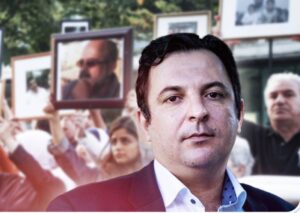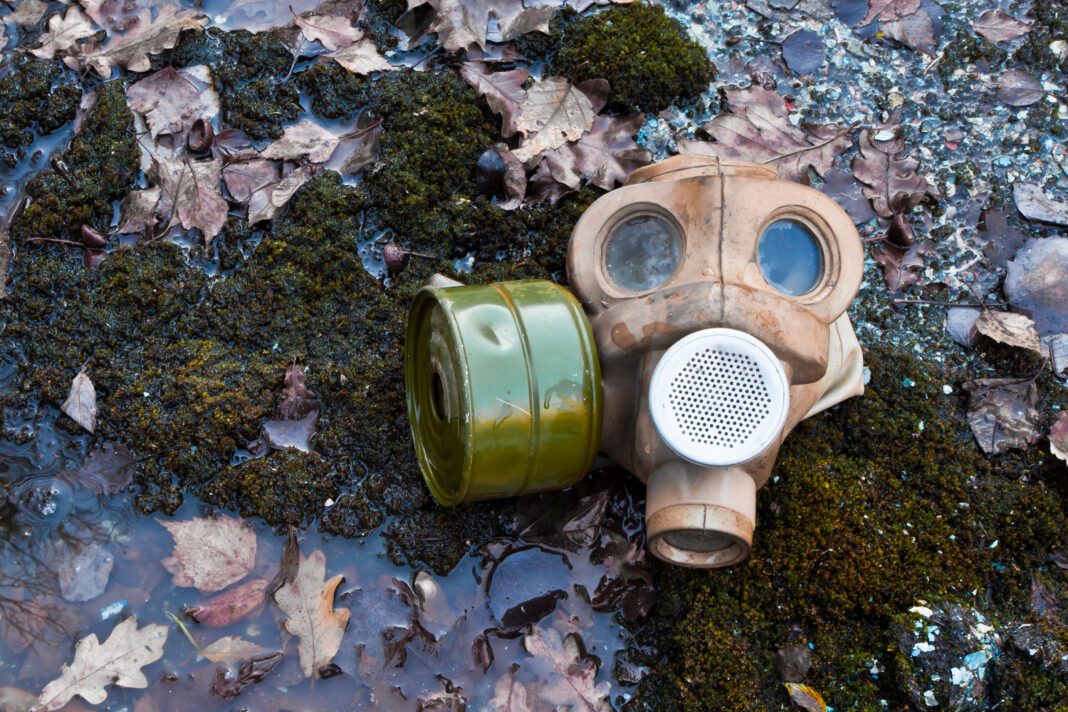by Ambra Visentin
In August 2013, more than 1,000 people were killed in Douma and in the district of Eastern Ghouta, in Syria, with banned chemical weapons. Two weeks ago, French criminal investigative judges have issued arrest warrant against Syria’s President Bashar al-Assad, his brother Maher al-Assad, and two other senior officials over the use of these warfare. The investigation was opened based on the testimony of survivors filed in 2021 by ECM, and was supported by the Syrian Archive, the Open Society for Justice Initiative and the Civil Rights Defenders Organization.
Mr Darwish, France’s international arrest warrant for Bashar al-Assad is the first to be issued by a national court against a sitting head of state. What are the legal scenarios in this case?
“The elephant in the room is the question of impunity. This is nothing new in the field of human rights, especially when it comes to war crimes and crimes against humanity. There are practical and academic challenges. In this case, we are not only talking about war crimes, but also about the use of chemical warfare. Since the First World War, there’s been an agreement not to use such weapons, and yet we’re still talking about using them in conflicts. The Syrian regime wants us to go back to the time when this behaviour was acceptable, to wipe out a century of legal and ethical rules. We cannot remain silent. We have a responsibility to stop this breach of enduring norms, even if Syria is not part of the International Criminal Court.

What are the differences between an arrest warrant issued by the ICC and one issued by a State? Are there any advantages to the latter?
“The ICC is the main international criminal instrument for which governments have agreed to waive their impunity. National jurisdictions cannot normally prosecute the presidents or kings of other countries. But they can and should when it comes to chemical weapons. Some countries feel they are protected because they are not signatories to the Rome Statute. So we have to send a message. In addition, French domestic courts can try in absentia, which is not possible at the ICC, and this would be an extremely important step forward for many victims of Assad’s crimes.”
Bashar al-Assad is not attending the COP28 summit in Dubai. What does this say about his position on the international political scene?
“Many countries have changed their behaviour towards Assad after the arrest warrant was issued. They sent him requests, advised him not to attend the summit. We are going to make the regional normalisation with him very difficult. This is our tool to keep our file on the table. What we are doing is not for revenge. That has to be very clear. But there will only be a “ceasefire” in Syria, not a sustainable peace, as long as political agreements with other countries continue without solving the problems. And it will be the building of the country for another war. We need acceptable answers for the victims and civil society, otherwise this weak establishment and the state itself will be destroyed. The same applies to terrorism and other critical situations when the easy way is taken.”
A way that consists of?
“For example, we give the money to other countries, like Libya, to keep the refugees away. That does not work. We have to look at the causes to solve the problem. When it comes to terrorism, killing leaders has only given us “small victories” until the next leader or the next terrorist group. We all remember how Bush celebrated his victory and then what happened? Without an act of justice and democracy we cannot solve any situation.”
What does this case mean to you and what are the risks for your family’s and your own safety?
“It is a sign of hope. A hope that the real perpetrators of these crimes are not untouchable. More importantly, it is important for the victims to see that there is a justice system that recognises what has happened. This is one of the most important results, because there is propaganda in other countries, like in Russia, denying that what they say is true. As for your other question, well, we work in a dangerous area and the people we are fighting are not “the nicest”. But if we don’t fight them, it’s even more dangerous and the price is higher, even on a personal level. But yes, I am aware of the risks. My brother left the country about a month before the French arrest warrant was issued.”
Complaints similar to the one that led to the French prosecutors’ decision have been made in Germany and Sweden. What could multiple ongoing investigations achieve?
“Well, in Germany and Sweden we have submitted evidence on the 2013 chemical attacks and the 2017 Khan Sheikhoun attack. What we need to do is to engage in the fight against the impunity working from several countries. SCM, together with a large group of other Syrian civil society and human rights organisations, has laid the groundwork for the creation of a special tool. Yesterday, on the International Day of Remembrance for All Victims of Chemical Warfare, we issued a public call for the establishment of an International Criminal Court for the use of chemical weapons.”
What do you remember most about the years you spent imprisoned in Syria?
“I remember thinking that they were going to come and kill us. I was imprisoned in the same area, in Douma, where the military used the chemical weapons, so I thought about Auschwitz and how it could go if they decided to kill us with gas.”
Mazen Darwish is a prominent Syrian human rights defender, journalist and Director of the Syrian Centre for Media and Free Expression. He has worked for many years on human rights, freedom of expression and freedom of the press in Syria, and has been detained as a result of his efforts for a free media and freedom of expression. In 2012, he was incarcerated multiple times for delivering information about the Syrian conflict to Arab and foreign news outlets. He received the Pen Pinter Prize, World Press Freedom Hero, honored with UNESCO-Guillermo Cano World Press Freedom Prize, President of Syrian Center for Media and Freedom of Expression, and Founder of Syria View newspaper. Mazen continues to relentlessly stand up for freedom of expression for all future generations in Syria.
To learn more, read our Syria conflict factsheet
Cover image: Mikhail Semenov on Shutterstock



























